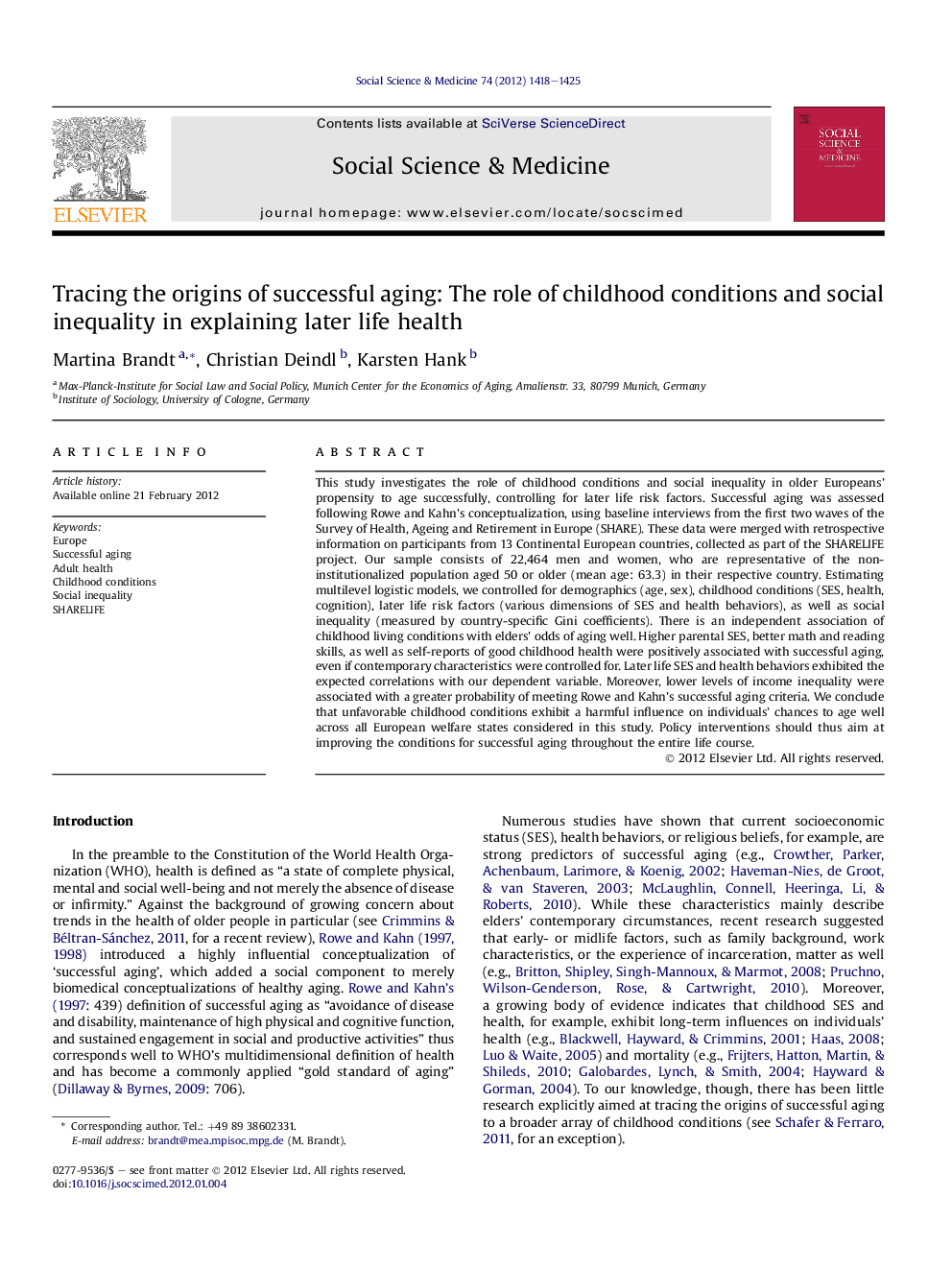| کد مقاله | کد نشریه | سال انتشار | مقاله انگلیسی | نسخه تمام متن |
|---|---|---|---|---|
| 952505 | 927518 | 2012 | 8 صفحه PDF | دانلود رایگان |

This study investigates the role of childhood conditions and social inequality in older Europeans' propensity to age successfully, controlling for later life risk factors. Successful aging was assessed following Rowe and Kahn's conceptualization, using baseline interviews from the first two waves of the Survey of Health, Ageing and Retirement in Europe (SHARE). These data were merged with retrospective information on participants from 13 Continental European countries, collected as part of the SHARELIFE project. Our sample consists of 22,464 men and women, who are representative of the non-institutionalized population aged 50 or older (mean age: 63.3) in their respective country. Estimating multilevel logistic models, we controlled for demographics (age, sex), childhood conditions (SES, health, cognition), later life risk factors (various dimensions of SES and health behaviors), as well as social inequality (measured by country-specific Gini coefficients). There is an independent association of childhood living conditions with elders' odds of aging well. Higher parental SES, better math and reading skills, as well as self-reports of good childhood health were positively associated with successful aging, even if contemporary characteristics were controlled for. Later life SES and health behaviors exhibited the expected correlations with our dependent variable. Moreover, lower levels of income inequality were associated with a greater probability of meeting Rowe and Kahn's successful aging criteria. We conclude that unfavorable childhood conditions exhibit a harmful influence on individuals' chances to age well across all European welfare states considered in this study. Policy interventions should thus aim at improving the conditions for successful aging throughout the entire life course.
► This study uses unique life history data from 13 European countries to trace the origins of successful aging.
► Childhood conditions greatly impact individuals' odds of aging successfully, independent of later life risk factors.
► Lower social inequality in a country is associated with higher odds of aging well.
► Welfare state policies have the capacity to improve conditions for healthy and active aging from early life onwards.
Journal: Social Science & Medicine - Volume 74, Issue 9, May 2012, Pages 1418–1425